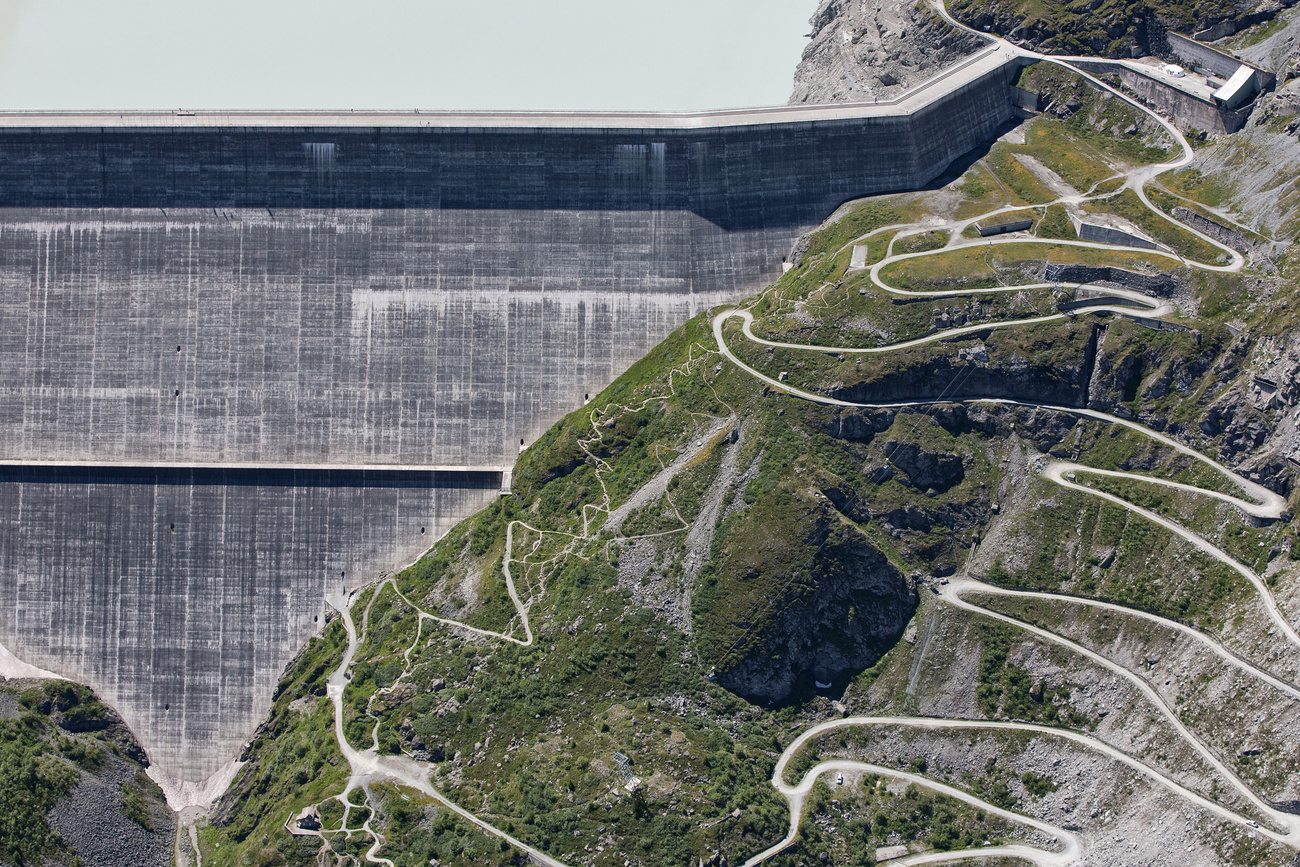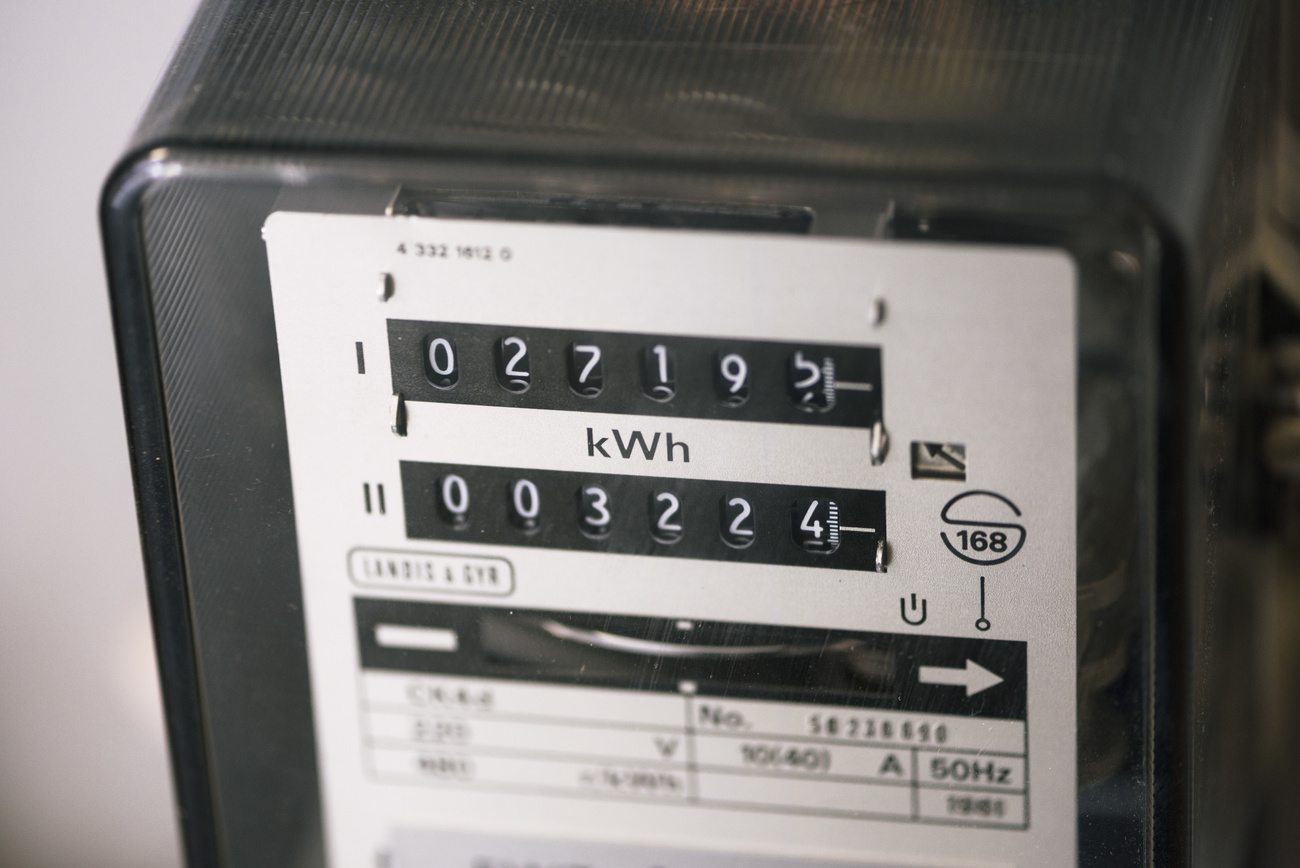
Swiss government plans hydropower reserves and power plants

Switzerland is planning new hydropower reserves and three back-up power stations to prepare for any potential energy crunch in the coming years.
The Swiss government wants to strengthen the supply of future energy and the national power network as it phases out nuclear energy and creates more renewables, including hydropower.
The government announced on Thursday that it had approved the setting up of a hydropower reserve by winter 2022/23. Companies operating Alpine dams and reservoirs and hydropower storage plants will be obliged to retain some energy in return for an unspecified fee.
The government has also instructed the energy ministry to draw up plans to build and operate peak-load power plants from around 2025-2026.
“The reserve power plants are to be available in the event of extraordinary shortages and are to be operated in a climate-neutral manner,” the government said in a statementExternal link, adding it was also preparing measures to improve electricity efficiency.
These would be used to cover needs in exceptional circumstances when the market is unable to meet demand.
In a report, the Federal Electricity Commission (ElCom) recommends building two or three gas-fired power stations with a total capacity of up to 1,000 megawatts. According to estimates, the investment costs for the plants could be up to CHF900 million ($976 million), or less if existing plants and infrastructure were used.
The details of these plans and proposed locations must still be finalised.
Electricity produced in Switzerland is 56% hydroelectric, 35% nuclear, 3% fossil fuel-generated and just under 6% from other renewable energies.
Energy crunch
There is a risk of a future electricity shortage in Switzerland, especially in winter, according to some experts.
“The most pessimistic scenario foresees a shortage lasting several weeks,” Werner Luginbühl, ElCom president, told reporters in Bern on Thursday.

More
Swiss energy bills contained, but future crunch looms
The question of future energy supply and possible power outages has sparked keen debate among politicians and business leaders.
Last October the Swiss government shared its vision for coping with major power outages from 2025 in a brochure sent to 30,000 Swiss companies. It said firms could be ordered to reduce their electricity consumption by a specific percentage in the event of a shortage.
In the absence of an electricity agreement with the European Union, such a scenario is likely if large power plants fail in Switzerland or abroad, it warned.
“A power shortage is, next to a pandemic, the greatest threat to Switzerland’s energy supply,” Economics Minister Guy Parmelin said in a video.

In compliance with the JTI standards
More: SWI swissinfo.ch certified by the Journalism Trust Initiative




























You can find an overview of ongoing debates with our journalists here . Please join us!
If you want to start a conversation about a topic raised in this article or want to report factual errors, email us at english@swissinfo.ch.